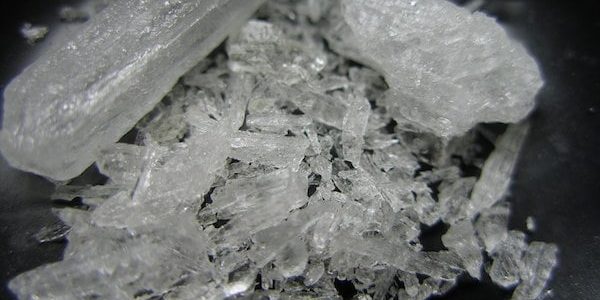A foreign national who was arrested last weekend for possession of methamphetamine is being held at the Central Police Watch House in Honiara, awaiting legal advice from the Director of Public Prosecutions (DPP) on his case.
The arrest followed a police raid at the suspect’s residence in Henderson, Central Guadalcanal, where officers confiscated few small plastic packages containing a crystalline substance. Police later tested and confirmed it to be methamphetamine.
The Royal Solomon Islands Police Force (RSIPF) confirmed the arrest of the suspect, who went through all formal Police processes and was then referred to Office of Director Public Prosecutions (DPP) for legal advice.
During questioning at the Central Police Station, the suspect allegedly made admissions that led police to bring in four other foreign nationals from Tandai, West Honiara, for questioning.
However, police were unable to take further action against the four, as information about them was obtained only through the suspect’s admissions. They were later released after questioning.
Director of Public Prosecutions Andrew Kelesi confirmed the arrest and noted that the Dangerous Drugs Act (DDA) contains serious legislative gaps.
He explained that the current law only covers offences related to the importing, exporting, and transporting of cocaine and methamphetamine.
According to Kelesi, the DDA is the principal legislation governing drug offences in Solomon Islands, criminalizing substances including cocaine and methamphetamine. Methylamphetamine—commonly known as “Ice”—was added to the Act’s schedule through Legal Notice No. 101 of 1987 or Legal Notice No. 6 of 1988, making it subject to the offences outlined in Part 3 of the Act.
“However, Part 3 only covers importing, exporting, and transporting dangerous drugs. Critically, the current legislation does not criminalize possession, supply, or manufacturing of these substances.
“This means that under existing law, it is not illegal to possess or even manufacture methamphetamine in Solomon Islands,” DPP Kelesi said.
DPP Kelesi emphasized the urgent need for lawmakers to amend the Act to close these gaps, warning that activities which should clearly be criminal remain outside the scope of current legislation.
By ASSUMPTA BUCHANAN
Solomon Star, Honiara









